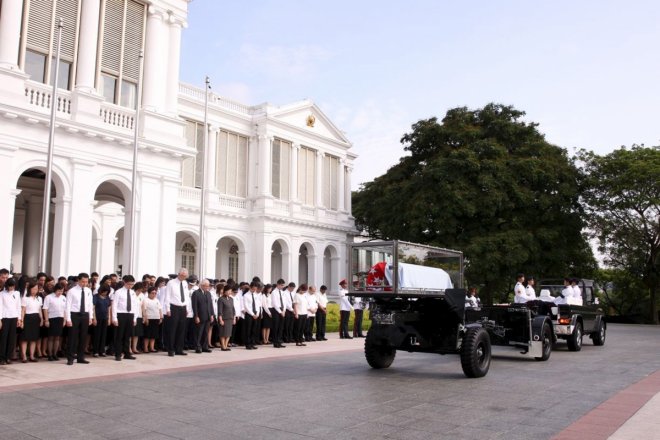
Singapore Prime Minister Lee Hsien Loong said in parliament on Tuesday the next president of the country will be ethnic Malay, provided a qualified candidate emerges. Lee said the government is adopting a Constitutional Commission recommendation that ensures fair racial representation in the top post.
Lee said his government will amend the Presidential Elections Act in January next year, ahead of the 2017 presidential election. "As Minister Yaacob (Ibrahim) noted yesterday, this would be our first after more than 46 years, since our first President Encik Yusof Ishak ... I look forward to this," Lee said.
"Every citizen, Chinese, Malay, Indian or some other race, should know that someone of his community can become President, and in fact from time to time, does become President," Lee added.
The prime minister said the presidency will be reserved for candidates from a certain race under the hiatus triggered model.
What is the hiatus-triggered model?
Under the hiatus-triggered model, if no one becomes president from a particular community for six successive terms, the government will reserve the ensuing term for a person from that community. So if a Malay of Indian or Chinese hasn't become president in 30 years, then it will be the turn for that race.
Lee said this system will help build a radically different society that values the city state's multiracial qualities and ensures equal rights to minority communities.
Earlier this year, Singapore formed a high-profile constitutional commission to review the elected presidency system. The panel was asked submit recommendations on the elected presidency system, which has been in place since 1991, ahead of presidential elections scheduled for August 2017
Who is eligible to become Singapore president?
The president is directly elected by simple majority popular vote for a single 6-year term. Singapore has put in place strict eligibility criteria for anyone planning to run for president.
The election system stipulates that all candidates should get the certificates of eligibility issued by the Presidential Elections Committee.
In 1999 and 2005 incumbent candidates were elected unopposed as nobody else cleared the eligibility criteria.
The 2011 election was the first direct presidential election in 18 years in the country with four candidates in the fray.
The new Commission was tasked with reviewing the qualifying process and recommend changes lf existing provisions are seen inadequate.
President's powers
The president is the head of state while the prime minister is the head of the government. However, the president has significant powers in three areas -- protection of the state's reserves, appointment of key personnel including the chief justice and armed forces chief, and third, the use of internal security act.
The constitutional commission was asked to review how these powers function and if changes to existing provisions are needed. Another important area that came under the review of the commission is the role and composition of the Council of Presidential Advisers (CPA).
Lee said checks and balances, as well clear delineation of the role and functions of the head of state, were necessary.
Citing the 2011 election when some candidate's campaign promise was a S$60 billion economic stimulus plan, Lee said this was an example of straying into the executive's powers. "... But in 2011, some candidates' attitude was: Never mind, just say it. Get elected first, worry about the Constitution later on," Lee said.








